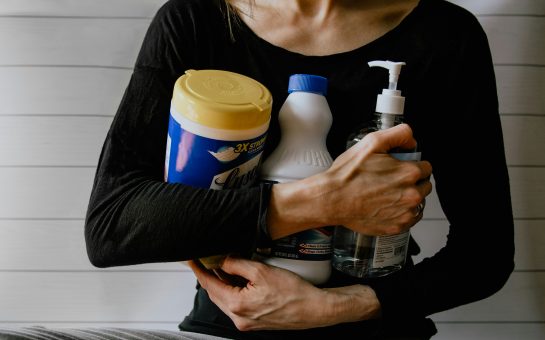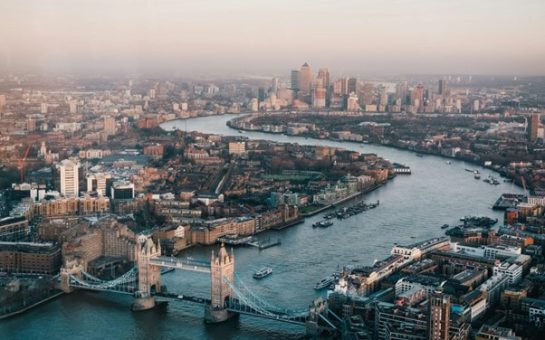The Royal Trinity Hospice, England’s oldest, marked the end of its 125th anniversary year with a service of thanksgiving at Southwark Cathedral on yesterday.
We spoke with Dallas Pounds, the hospice’s chief executive, about the work of the hospice, its history, and the challenges this vital form of care, which many people may prefer not to think about, offers.
How did you get involved with Royal Trinity Hospice?
I am a nurse by deep distant background. When I was nursing I was a specialist palliative care nurse so I worked in hospices. I went off and did lots of other different types of nursing and got into healthcare management.
I was 25 years in the NHS and then decided I’d like to work in the charity sector and was lucky enough to get a job at the Terrence Higgins Trust, where I was executive director of operations.
One day, someone slid a job advert across the table to me and said that Trinity Hospice, as it was then, were looking for a chief executive. It was a dream job really, and I was lucky enough to get that three and a half years ago.
What drew you to hospice work?
Even while I was training as a nurse I felt that it was a real privilege to be allowed to be alongside people who were facing death and dying, and their families that were around them.
I found it almost a pleasure to be in that sort of work and the difference I could make every day to those families and the people that were dying was just really uplifting for me.
I found that I was actually quite good at being with people who were going to face their end of life, so being good at and enjoying it was really just everything for me.
The 125th anniversary is quite a big achievement – what’s been going on over the past year to mark that?
We’ve had the most outstanding year. It started with the Cabinet Office awarding us the “Royal” title, so we went from being Trinity Hospice to being Royal Trinity Hospice to start our 125th year off, which felt incredibly special. I think that’s in recognition of our long history and also our long connection with the royal family – Buckingham palace is actually in our catchment area. It was just a massive testament to the care that we’ve been giving all these years, and the fact that we’ve been serving the community for 125 years.
Then, the Duchess of Cornwall, who’s our patron, came to visit us, which is always a treat. She’s a wonderful lady who loves coming to the hospice, and we love her visiting.
We’ve had all sorts of events – we’ve had awareness-raising evends, we’ve had fundraising events, we’ve done publications and blogs, we’ve been on the telly and the radio. We’ve had just the most phenomenal year, it’s been great fun. Coming together at Southwark Cathedral brings that all together for us.
Where does the Hospice get its fundraising from?
Trinity costs thereabouts £12 million to run every year and less than a third of that comes from the NHS, so we’re reliant on our fundraising efforts and our 25 shops spread throughout our catchment area to raise somewhere in the region of £25,000 a day for us.
We have a fantastic fundraising team and we do any manner of fundraising events, from people throwing themselves out of perfectly good aeroplanes and running marathons for us, right through to our gala events and dinners and our biennial ball. We have fantastic relationships with local corporates and other trusts and grant-making organisations.
We’re totally reliant on the generosity of the community we serve to keep us here.
Are there any particular issues that you especially want to raise awareness of or campaigns you’re running?
At the moment we’re particularly focusing our website fundraising on our gardens – we have two and a half acres of beautiful gardens here and they provide an amazing therapeutic space for our patients and staff alike, but our appeal focus changes throughout the year.
We’ve got a really big push on to open an outpatient and wellbeing centre on the north side of the River Thames as our catchment area covers both sides of the water.
We are looking for properties at the moment and raising money to open a new centre,
What are you most proud of about the hospice’s work?
The difference that we make to patients and to the small community around patients – their family, their friends, their colleagues and neighbours.
Every day here I hear a story of where my staff have gone the extra mile to make a wish come true, to have such a strong presence alongside people to make death the very best it can be but also to make sure people have the opportunity to live every moment until that death.
For instance, one of our patients was desperate to go to a concert and a member of my staff got on the phone and arranged that. We’ve arranged last-minute weddings.
We’ve also started doing virtual reality work, which means we’ve taken patients back to Jerusalem, where they haven’t been for 25 years , or swimming with dolphins, or walking on the beach.
Every day I hear something that makes me so incredibly proud of my team and what they do alongside people that are at really the worst time in their life.
What’s the most challenging aspect of the work?
I think it’s twofold. It’s constantly having to battle public perception about what hospices are and reluctance to talk about death and dying, and on a much more practical level raising the money to still be here.
Do you have a message you’d like to put out to the public?
Talking about death and dying still is a big taboo in our soceity, and that’s such a shame for many reasons.
The biggest reason is that when you work in the field like we do, we can see the benefits of talking and planning about death and dying, long before it really becomes a reality.
To talk to your family about what your wishes might have been, to write a will, to think about your Facebook account up front and then to put those things away and get on and live, whether you’ve got a terminal diagnosis or not, is so empowering when you come to the end, because there aren’t unanswered questions, there aren’t things that those that are left have to guess at or argue about or get upset by.
You have those chats, you know what mum’s wishes were, you know what dad thought about funerals or music.
We know from experience, from being alongside thousands and thousands of people and their families that talking and planning can make such a huge difference.
At the end of the day it is relevant to all of us, we are all going to die however fit and healthy and in denial we feel today.
Having some brave, but simple conversations can make all the difference.




